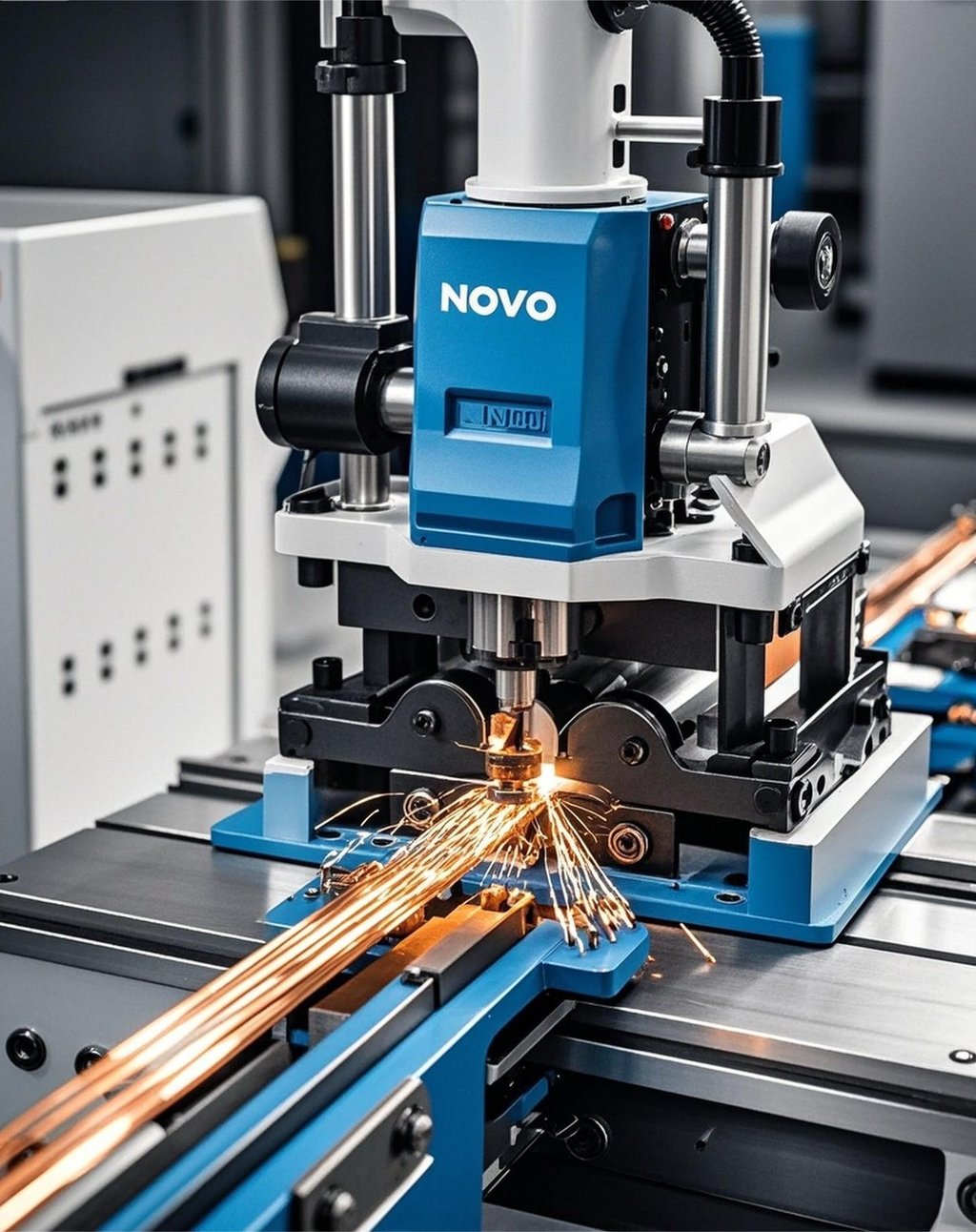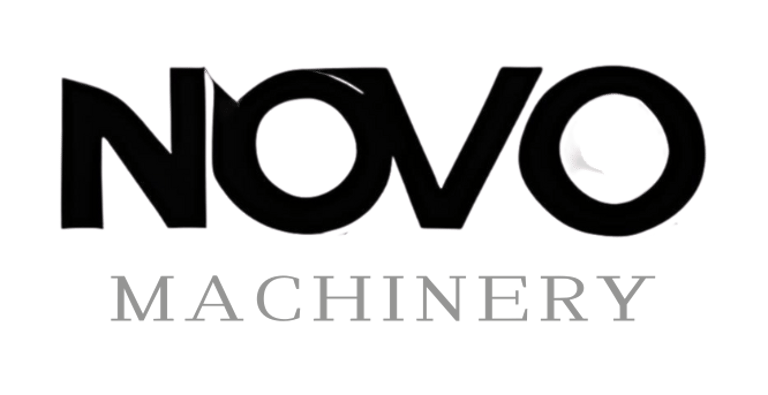Competitive Edge of Chinese Busbar Processing Machines
Discover why Chinese busbar processing machines are leading the global market. This comprehensive comparison covers performance, pricing, and customization capabilities, highlighting their advantages over competitors.
8/2/20255 min read


Understanding Busbar Processing Machines
Busbar processing machines are specialized industrial tools designed to manufacture and shape busbars, which are conductive metal strips used to distribute electrical power. These machines are integral to the manufacturing processes within various industries, particularly in electrical engineering and manufacturing, where efficient power distribution is paramount. Primarily composed of materials such as copper and aluminum, busbars facilitate reliable electrical connections in power distribution systems, ensuring safety and efficiency.
The operating principle of busbar processing machines involves a series of steps including cutting, punching, bending, and sometimes even drilling the busbars to meet specific dimensional requirements. By automating these processes, manufacturers can greatly enhance productivity and reduce labor costs. The precision that these machines provide is essential for ensuring that the busbars meet stringent industry standards, which directly affects the reliability and safety of electrical distribution systems.
In addition to their primary functionality, busbar processing machines can be used in various applications ranging from power generation plants and substations to renewable energy installations. These machines streamline operations by significantly reducing manual labor and minimizing the risk of human error during the production process. Moreover, they are equipped with advanced technologies such as computer numeric control (CNC), which allows for greater customization and accuracy in designing busbars tailored to specific requirements.
Technological advancements have played a critical role in the evolution of busbar processing machines. Innovations such as automation, improved material handling, and enhanced software capabilities have transformed traditional manufacturing techniques, making them more efficient and adaptable. Consequently, these machines not only improve production rates but also enable manufacturers to stay competitive in an increasingly globalized market, thus ensuring that busbar processing remains a vital component in the electrical infrastructure.
Performance Comparison: Chinese Machines vs. Global Competitors
In the competitive landscape of busbar processing machines, performance remains a paramount consideration for manufacturers and users worldwide. Chinese busbar processing machines have gained significant traction in the global market, largely due to their impressive performance metrics when compared to international counterparts. Key performance indicators such as processing speed, precision, durability, and energy efficiency highlight the strengths of these machines.
One primary area in which Chinese machines excel is processing speed. Modern designs incorporate advanced automation technologies, allowing for faster operation without compromising quality. User feedback indicates that Chinese machines often complete processing tasks in significantly reduced timeframes, leading to enhanced productivity for manufacturers. This increased throughput correlates with the innovations in tooling and machine architecture specifically designed for high-speed operations.
Precision is another critical performance factor where Chinese machines demonstrate competitiveness. The incorporation of state-of-the-art technology and rigorous quality control processes ensures that these machines deliver highly accurate results consistently. Feedback from industry reports often cites the reduced error rates and superior consistency in finished products as key advantages of using Chinese equipment.
Durability, particularly in demanding operational environments, is also a strength of Chinese busbar processing machines. Robust construction materials and engineering designs contribute to machines that can withstand rigorous usage over extended periods. This robustness translates into lower maintenance costs and longer service life, which are crucial aspects for companies aiming to optimize their operational expenditures.
Lastly, energy efficiency is increasingly prioritized in the manufacturing sector, where operating costs can be significantly impacted by energy consumption. Many Chinese manufacturers have prioritized the development of machines that operate with lower energy requirements, enabling users to achieve substantial savings while also contributing to more sustainable production practices.
The combination of these performance factors positions Chinese busbar processing machines as a formidable option in the global market, appealing to users who prioritize efficiency and reliability in their operations.
Price Analysis: Cost-Effectiveness of Chinese Machines
In recent years, the prices of busbar processing machines from Chinese manufacturers have come under scrutiny, especially when compared to their counterparts from Western and other Asian nations. A thorough analysis of the pricing structure reveals several competitive advantages that Chinese machines exhibit in the global market. One notable factor contributing to this cost-effectiveness is the relatively lower manufacturing costs in China. With a well-established supply chain, streamlined production processes, and an abundance of skilled labor, manufacturers can achieve economies of scale that significantly reduce overall expenses.
Material quality is another aspect influencing the pricing of busbar processing machines. Chinese manufacturers have made significant advancements in sourcing high-quality raw materials while maintaining competitive pricing. This capability allows them to produce machines that not only meet international standards but also offer durability and longevity at a fraction of the cost compared to machines from other countries. As a result, prospective buyers often find that the lower upfront cost of Chinese machines does not compromise their quality or reliability.
In addition to manufacturing expenses, the pricing strategy employed by Chinese manufacturers tends to favor flexibility, often providing more options for customization at minimal additional costs. This adaptability means that buyers can tailor machines to suit their specific requirements without facing exorbitant price hikes. Furthermore, after-sales support services, which can impact operational costs, are increasingly becoming a focus for Chinese companies aiming to enhance buyer satisfaction and trust.
The overall picture suggests that the combination of lower initial investments and reduced operating costs can significantly impact decision-making for buyers. In a competitive landscape such as the busbar processing machine market, these financial advantages position Chinese machines as a cost-effective solution, appealing to businesses looking to optimize both their budget and production efficiency.
Customization Capability: Tailoring Solutions to Client Needs
In the competitive landscape of busbar processing machines, customization capability stands out as a key differentiator for Chinese manufacturers. These companies are adept at providing tailored solutions that align with client specifications, allowing for enhanced flexibility in production processes. One of the primary strategies employed is modular design, which enables manufacturers to create busbar processing machines that can be easily modified to meet varying customer requirements. This approach not only streamlines the manufacturing process but also accommodates design alterations without the need for extensive overhauls, thereby reducing lead times and costs.
Moreover, the software adaptability in many Chinese busbar processing machines plays a significant role in customization. Advanced programmable logic controllers (PLCs) and user-friendly interfaces allow clients to adjust machine settings efficiently. This intrinsic flexibility ensures that users can swiftly adapt to new manufacturing techniques or production volumes, fostering innovation and improvement in operations without substantial downtime. Furthermore, these adaptations extend beyond mere functionalities. Manufacturers offer continuous updates and support, facilitating ongoing adjustments as market conditions and technological advancements evolve.
Businesses that have embraced customized solutions report significant benefits, including enhanced production efficiency and reduced waste. For example, a notable case is that of a large electrical equipment manufacturer that integrated customized busbar processing machines into its production line, resulting in a 30% increase in output. Furthermore, the ability to produce precise, tailored busbars has allowed them to cater more effectively to niche markets, thereby positioning themselves favorably against competitors.
Chinese manufacturers’ focus on customization through modular design, adaptable software solutions, and robust post-purchase support significantly enhances their competitiveness in the global market. Such capabilities empower clients to not only meet but also anticipate market demands, establishing a foundation for sustained growth and innovation.
Innovate
Leading manufacturer of busbar processing equipment solutions.
Contact
Support
+131 2713 4627
© 2025. All rights reserved.
